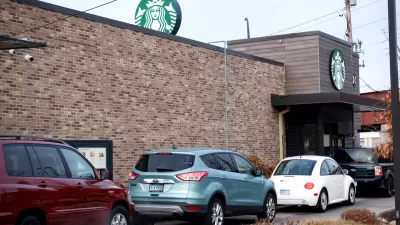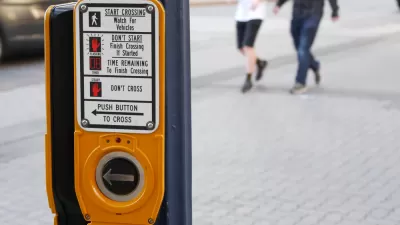While the United States mobilizes to transition to electric cars, cities and countries in Europe are transitioning to fewer cars.

California recently announced its plans to phase out sales of gasoline-powers automobiles by 2035, as was widely reported in the final days of August.
Europe months earlier made a similar announcement, according to an article for Yahoo News by Melissa Rossi, “But in Europe that move is only one step in an ongoing transportation revolution that aims to simultaneously reduce greenhouse gas emissions, air pollution and noise pollution, while increasing livability in urban areas, including the implementation of designs for ‘15-minute cities,’ where daily necessities are located mere steps away from homes.”
The fundamental difference in the European approach is in the goal of reducing the number of cars on the road. Gareth Macnaughton, director of innovation at the European Institute of Innovation and Technology Urban Mobility Initiative, is quoted in the article making the case that just switching to electric cars isn’t sufficient.
“Increasingly, Europe’s urban planners are modifying neighborhoods to restrict car entry — while encouraging ‘active mobility,’ said Macnaughton, such as walking and biking, and mass transit use,” reports Rossi.
The case against cars as the transportation mode of the future is also made in another recent article by John Vidal for the Guardian. “The reality from Hotan to Hull and Lagos to Lahore is that the car is now a social and environmental curse, disconnecting people, eroding public space, fracturing local economies, and generating sprawl and urban decay,” writes Vidal. Local efforts to efforts to limit the use of cars in Europe suggest to Vidal that a key shift is already upon us.
A Planetizen article by Joan Fitzgerald from July 2020 details the numerous cities and local jurisdictions around the world and in Europe making it harder to own and operate a private automobile. There’s a surprising amount of evidence to call on—and while European cities like London and Paris have made substantial mode shifts in recent years, the trend has been at work for years.
FULL STORY: European cities look to phase out cars in 'transportation revolution'

Alabama: Trump Terminates Settlements for Black Communities Harmed By Raw Sewage
Trump deemed the landmark civil rights agreement “illegal DEI and environmental justice policy.”

Planetizen Federal Action Tracker
A weekly monitor of how Trump’s orders and actions are impacting planners and planning in America.

How Atlanta Built 7,000 Housing Units in 3 Years
The city’s comprehensive, neighborhood-focused housing strategy focuses on identifying properties and land that can be repurposed for housing and encouraging development in underserved neighborhoods.

In Both Crashes and Crime, Public Transportation is Far Safer than Driving
Contrary to popular assumptions, public transportation has far lower crash and crime rates than automobile travel. For safer communities, improve and encourage transit travel.

Report: Zoning Reforms Should Complement Nashville’s Ambitious Transit Plan
Without reform, restrictive zoning codes will limit the impact of the city’s planned transit expansion and could exclude some of the residents who depend on transit the most.

Judge Orders Release of Frozen IRA, IIJA Funding
The decision is a victory for environmental groups who charged that freezing funds for critical infrastructure and disaster response programs caused “real and irreparable harm” to communities.
Urban Design for Planners 1: Software Tools
This six-course series explores essential urban design concepts using open source software and equips planners with the tools they need to participate fully in the urban design process.
Planning for Universal Design
Learn the tools for implementing Universal Design in planning regulations.
Jessamine County Fiscal Court
Caltrans
Institute for Housing and Urban Development Studies (IHS)
City of Grandview
Harvard GSD Executive Education
Toledo-Lucas County Plan Commissions
Salt Lake City
NYU Wagner Graduate School of Public Service





























